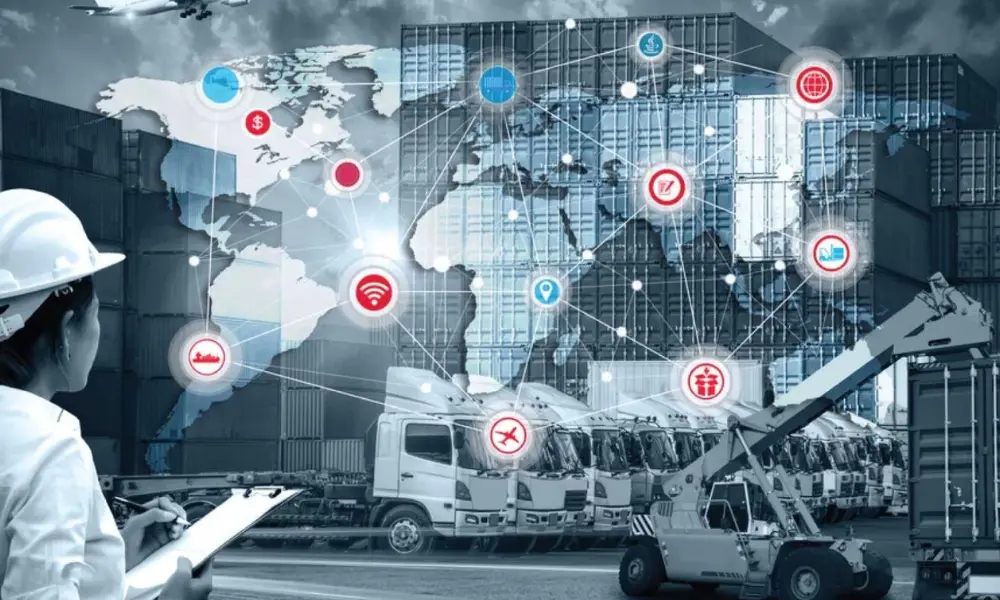In a world full of plastic and packaging ideas and styles, there is a dire need for sustainability. India, in particular, requires sustainable packaging solutions to cater to her environmentally conscious consumers. As environmental concerns rise, businesses must recognise the importance of adopting eco-friendly practices.

Efficient supply chain management,as part of the business model, is crucial for realising the full potential of sustainable packaging. It is the backbone of every industry.
In this blog, we will address the question, ‘What is sustainable packaging?’ along with its increasing significance, its alignment with supply chain management, and our aim to illuminate how these transformative trends are shaping India’s supply chain landscape.
Join us on this enlightening journey as we unpack the transformative potential of sustainable packaging India’s supply chain management.
Role of Sustainable Packaging in India
The packaging industry is ever-expanding around the world. By 2024, it’s expected to be worth $1.05 trillion.[source]
In India, the packaging industry is also seeing significant growth. People have more spending power owing to the expanding economy. Thus, there is a demand for good packaging for the goods that people are buying. The packaging industry is not slowing down, especially for things like food, drinks, everyday products, and medicine.
The Future
In the next ten years, India is going to work on “sustainable packaging India”. One way India can implement it is by stopping the single-use plastic. Instead the focus will be on recycling and materials that break down naturally.
India uses a lot of plastic in packaging. The packaging industry in India significantly relies on outsourcing certain materials (like ethylene, propylene, styrene).
India buys nearly 1.7 million tonnes of polyethylene (a type of plastic) from other countries. Also, about 73% of the ethylene made Indian is there in producing polyethylene. Most of this plastic goes into packaging. [source]
This gives India a special chance to adopt sustainable packaging.They can use sustainable packaging materials like bio-based or paper-based packaging instead of plastic. This way, sustainable packaging India can reduce her plastic usage. So, let’s see how adopting sustainable packaging helps supply chain networks.
4 Advantages of Sustainable Packaging in Supply Chain Management
Environmental Responsibility
Sustainable packaging reduces the environmental impact of the supply chain. It helps in conserving natural resources, reducing waste, and lowering greenhouse gas emissions. This aligns with growing consumer and regulatory demands for eco-friendly practices.
- Enhances Product Safety and Brand Visibility
Transportation-related goods always have the risk of damage. Replacing or repairing them is expensive. Additionally, losing the cost of the item along with its shipping cost, you would also need to send a replacement. This situation will get worse if it happens often. It will raise your company’s logistical cost and can hamper your brand’s reputation.
Thankfully, there are several sustainable packaging materials that are a combination of two or more biodegradable materials. They offer durability and convenience during transportation and storage.
Such environmental-friendly, logistical packaging guarantees that your goods will arrive undamaged.
- Increased Convenience of Warehouse and Storage
Another advantage of sustainable packaging India is the amount of time the products spend in transit. Products spend time in a warehouse or a storage facility between the time it goes for shipping and estimated delivery date.
It travels a lot to reach its destination. Therefore, it is only logical that materials have adequate packaging that make storage easier and also ensures to “protect” the package.
- Makes Transportation Easier
Just like packaging enhances and ensures extra safety for products and goods, they also make transportation easier. Without good packaging that is sustainable, it will become difficult to transport a lot of products without harming the environment. Companies are therefore coming up with new sustainable packaging ideas all the time to meet the transportation demands.
- Environmental-Friendly Packaging
Sustainable packaging India offers solutions like biodegradable plastics made from plant-based sources, like cornstarch, offering a sustainable alternative to traditional plastic packaging.
Recycled cardboard and paper packaging materials reduce the need for new resource extraction and promote a circular economy.Reusable packaging options, such as glass or metal containers, allow for multiple product uses, reducing waste and promoting sustainability. With such options, sustainable packaging India not only makes outbound logistics sustainable, but it is also increasing brand awareness.
Learn more about Tamper-Evident Packaging in our blog here.
Companies need a smooth-running supply chain that uses good and sustainable packaging. Sustainable packaging is important not only because it protects products but it also draws customers. Using sustainability in the supply chain can allow companies to target a customer demographic whose consumption practices revolve around sustainability. Let’s see that in detail.
Consumer Demand and Sustainability
Sustainable packaging India holds the power to appeal to customers while simultaneously reducing supply chain costs within the global supply chain. With the increase in demand for sustainable packaging, brands are also looking to use different and “sustainable” materials and processes to pack their products.
Sustainability goes beyond eco-friendliness; it also results in lighter, more flexible products and packaging, reducing transportation costs in the global supply chain.
Cost-Cutting
Consumer Demands=Sustainability in Supply Chain= Cost Cuts
Cutting supply chain expenses often goes hand in hand with sustainability aims. When businesses reduce waste, lower energy usage, and lessen their environmental impact, they’re promoting sustainability and shrinking their carbon footprint.
Due to the increasing desire from consumers for sustainable packaging India and eco-friendly brands, companies may need to spend money to meet these demands. This could include investing in green materials, renewable energy sources, and sustainable packaging.
So, let’s see some of the factors that companies can adopt to enhance their supply chain procedures and customer satisfaction keeping sustainability as their focus.
4 Factors That Ensures Sustainability in Supply Chain Management
The first thing companies should do to make your supply chain more sustainable is to look at and change how you produce your products. To do this, companies should use smart manufacturing methods that make things efficiently and create less waste. This how to they can implement it:
- Just-in-Time Production (JIT)
This process requires partnership with your suppliers. You need to have all raw materials immediately before you start production. This approach ensures that you receive inventory at the right time. It minimises storage cost and reduces the risk of excess inventory.
- Technology for Inventory
Investing in technology helps to fastracks practice of sustainable packaging India. You can produce exactly what your consumers need by keeping track of demand and supply and production chains on your management software.
By utilising advanced inventory management systems, you can optimise your production process, ensuring everyone efficiently utilises materials and resources.
- Reducing Waste
Technology can help companies to actively identify and implement waste reduction strategies when it comes to sustainable packaging India. Companies can minimise unnecessary resource consumption thereby reducing total production costs. They can analyse production data to identify areas of waste and implement measures to eliminate or minimise them.
- Improving Efficiency
Reducing waste through sustainable packaging India also improves efficiency. An efficient and lean manufacturing process will move faster. It is going to be an efficient process that is cost-effective for the company. Using data analysis and implementing lean principles companies can enhance operational efficiency, improve productivity, and deliver products to the market at the right time.
FAQs: Green Revolution: How Sustainable Packaging India is Transforming Supply Chain Management
What is sustainable packaging in supply chain management?
Sustainable packaging in supply chain management involves eco-friendly materials and design to minimise environmental impact and reduce waste throughout distribution processes.
How do we achieve sustainable innovation in industrial packaging along a supply chain?
Companies must prioritise eco-friendly materials, optimise packaging design, reduce waste, and embrace circular economy principles.Collaboration with suppliers, embracing new technologies, and designing packaging for efficient transportation and storage can also improve sustainability.
Which industries are most influenced by Sustainable Packaging Research?
Industries that can benefit from sustainable packaging examples include food and beverage, cosmetics, consumer goods, pharmaceuticals, and e-commerce.
Which packaging system provides higher economic and environmental benefits?
Packaging systems that prioritise minimal material usage, recyclability, and energy-efficient production processes tend to provide higher economic and environmental benefits by reducing costs and environmental impact.
Conclusion
In this transformative journey towards sustainable packaging and supply chain management, Qodenext’s supply chain traceability software, plays a crucial role. By integrating advanced traceability solutions, they enable businesses to monitor and manage the movement of sustainable packaging Indian materials and products in real-time.
Using technology enhances transparency, accountability, and efficiency throughout the supply chain. This perfectly aligns with the goals of sustainable packaging. This contribution supports the adoption of eco-friendly practices, reduces waste, and addresses the growing consumer demand for environmentally responsible products.


